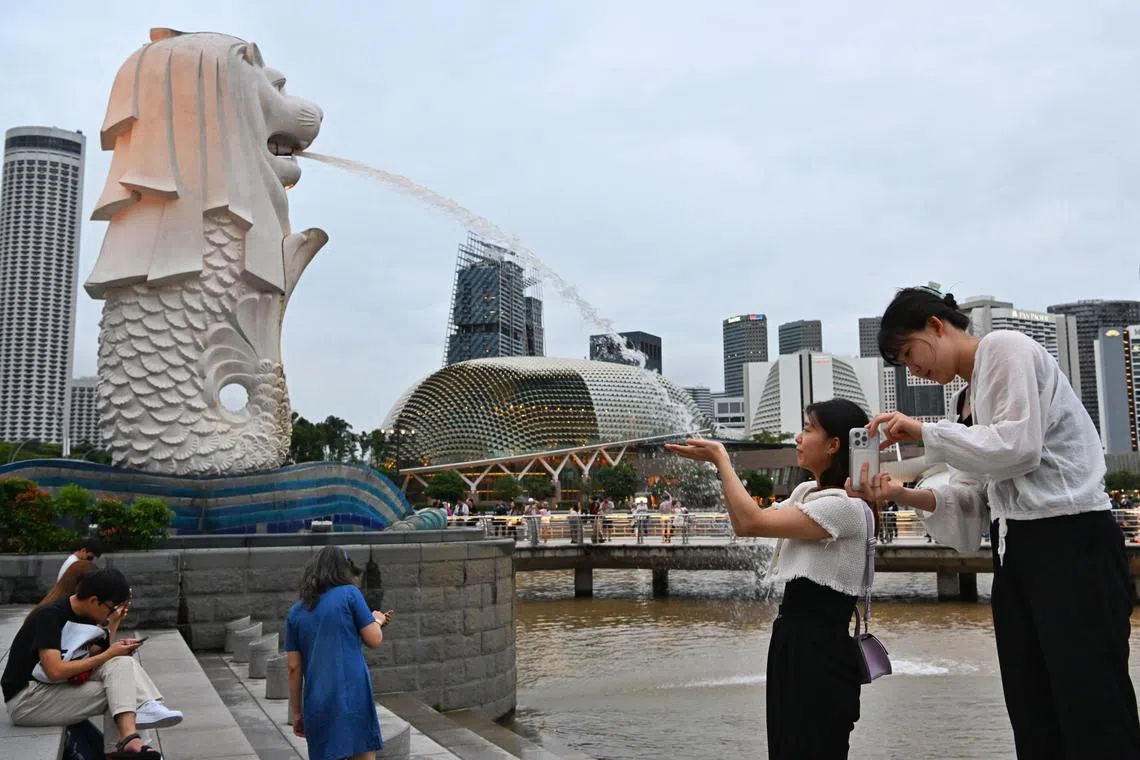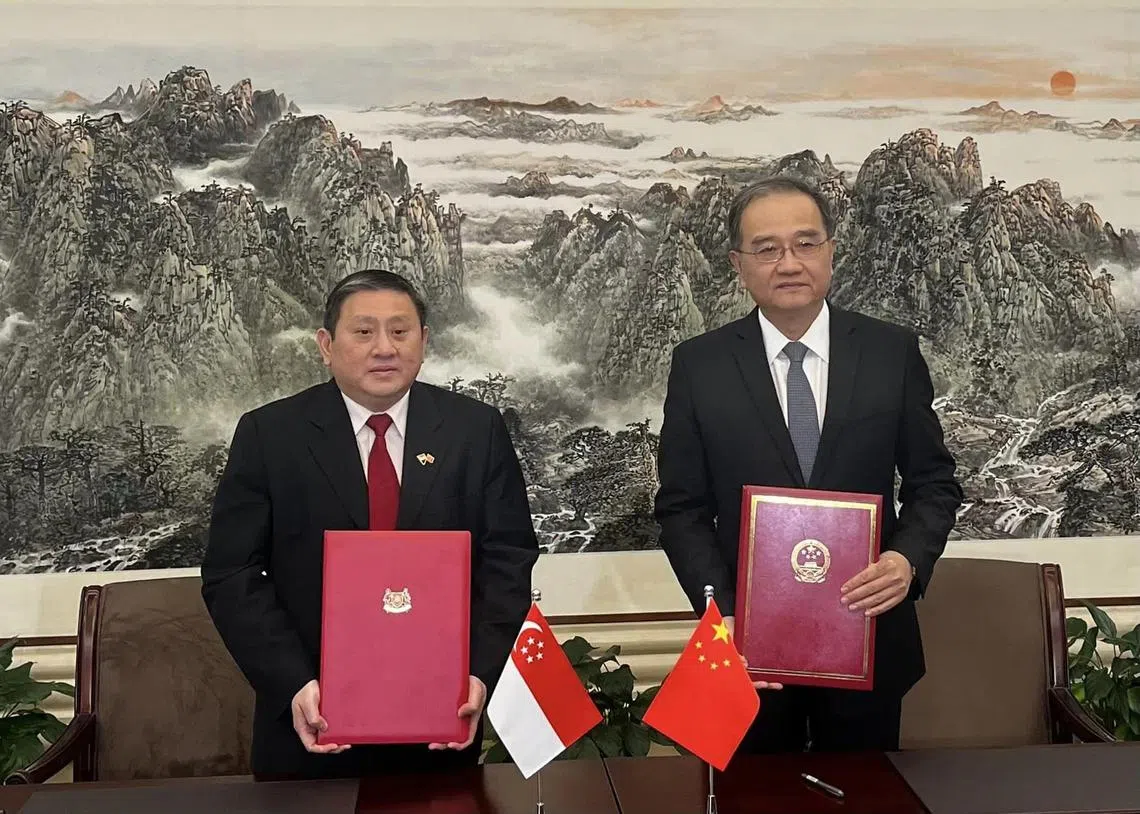Singapore-China mutual visa-free travel to start on Feb 9, in time for CNY
Sign up now: Get insights on Asia's fast-moving developments

The agreement will allow ordinary passport holders from Singapore and China to enter each other’s country without the need for a visa, and for a stay of up to 30 days.
ST PHOTO: CHONG JUN LIANG
SINGAPORE – Singapore and China will kick off their mutual 30-day visa-free arrangement on Feb 9, in time for the Chinese New Year holidays.
The agreement, signed on Jan 25 by officials from both sides, will allow ordinary passport holders from Singapore and China to enter each other’s country without the need for a visa, and for a stay of up to 30 days.
The exemption was announced in December 2023
The visa scheme was expected to begin in early 2024.
China reinstated a 15-day visa-free policy for Singaporeans earlier in July 2023,
Currently, Singaporeans can visit China for up to 15 days visa-free, while Chinese ordinary passport holders have to apply for a visa to enter Singapore.
There will be no refund of processing fees for those who had earlier submitted visa applications, said the Immigration and Checkpoints Authority (ICA) in a statement on Jan 25 announcing the start date of the visa-exemption arrangement.
Apart from diplomatic, public affairs and service passport holders – who are exempted from visa requirements for a stay of up to 30 days – those who hold any other travel document issued by the People’s Republic of China must continue to apply for an entry visa before travelling to Singapore, the ICA added.
Chinese Foreign Ministry spokesman Wang Wenbin said the implementation of the visa-free scheme ahead of the Chinese New Year holiday, which starts on Feb 10, was a “new year’s gift” to the people of both countries.
China now has “comprehensive” mutual visa exemption arrangements with at least 22 countries, Chinese media reported.
Singapore’s Embassy in Beijing said in a Facebook post that it looked forward to more business travel, tourism and exchanges between both countries with the implementation of the arrangement.
“It will also strengthen our people-to-people ties, promote mutual understanding, and bring about greater economic opportunities for Singapore and Singaporeans,” the embassy said.
More than 3.5 million Chinese tourists visited Singapore in 2019, but post-pandemic arrivals have not rebounded to such levels. From January to November 2023, the Republic received just 37 per cent of the visitors who had come from mainland China in 2019, according to figures released by the Singapore Tourism Board.

Singapore’s Embassy in Beijing said in a Facebook post that it looked forward to more business travel, tourism and exchanges between both countries with the implementation of the arrangement.
PHOTO: SINGAPORE EMBASSY IN BEIJING/FACEBOOK
Shortly after the announcement of the new visa-free regime, it became the top trending item on China’s microblogging platform Weibo, and has drawn over 290 million views.
Many Chinese netizens began discussing their travel plans to Singapore, with some rejoicing at not having to apply for a visa to attend concerts in Singapore.
“I just managed to get tickets to Taylor Swift’s concert today, and now there’s a visa-free regime,” said a user from Sichuan.
“JJ Lin, wait for me,” said another Weibo user from Guangdong, referring to the Singaporean singer.
Chinese travel platforms told ST that Singapore-related travel searches rose as well.
China’s largest online travel agency Trip.com said that in the one-hour period after the news was released, the popularity of Singapore-related visits increased by more than 14 times compared with the same period the previous day.
Another Chinese travel company, Tongcheng Travel, said that within half an hour of the announcement, Singapore-related searches on its platform increased by 340 per cent from the same period the day before. Searches for flights to and from Singapore during the Chinese New Year holiday increased fivefold compared with the day before.
Potential travellers who were most interested in Singapore-related travel information were mainly from coastal regions such as Guangdong, Jiangsu, Shanghai, Shandong and Zhejiang, it added.


